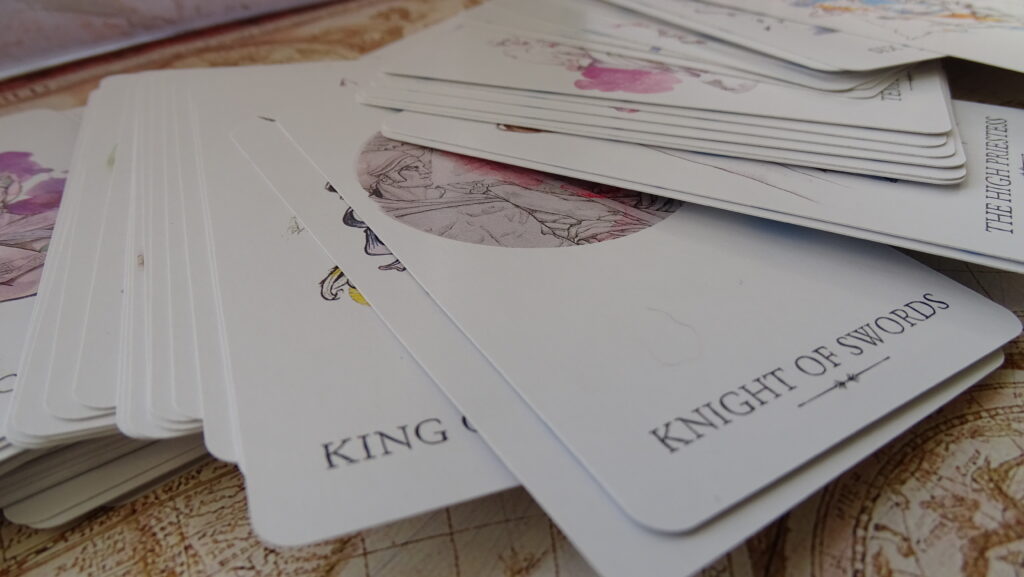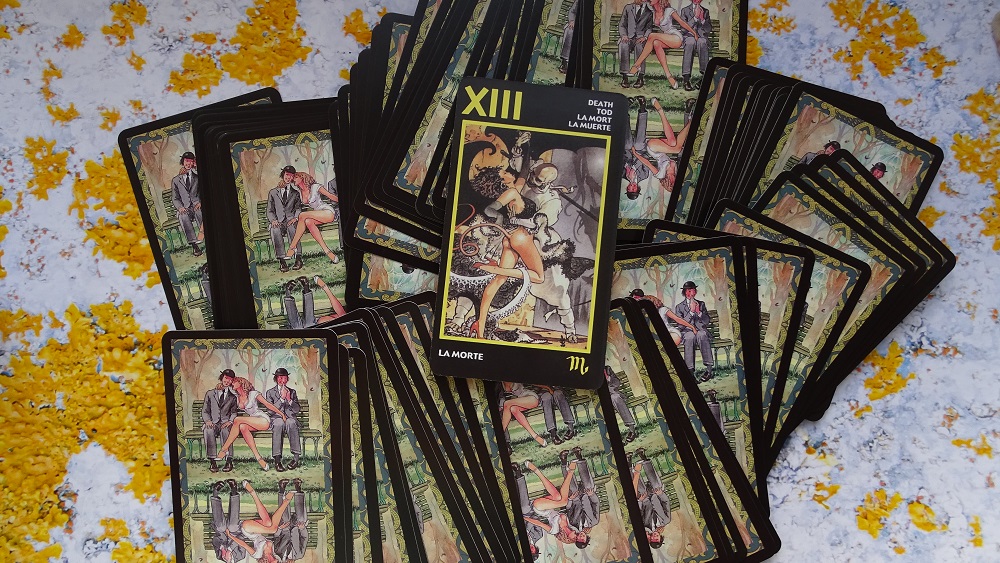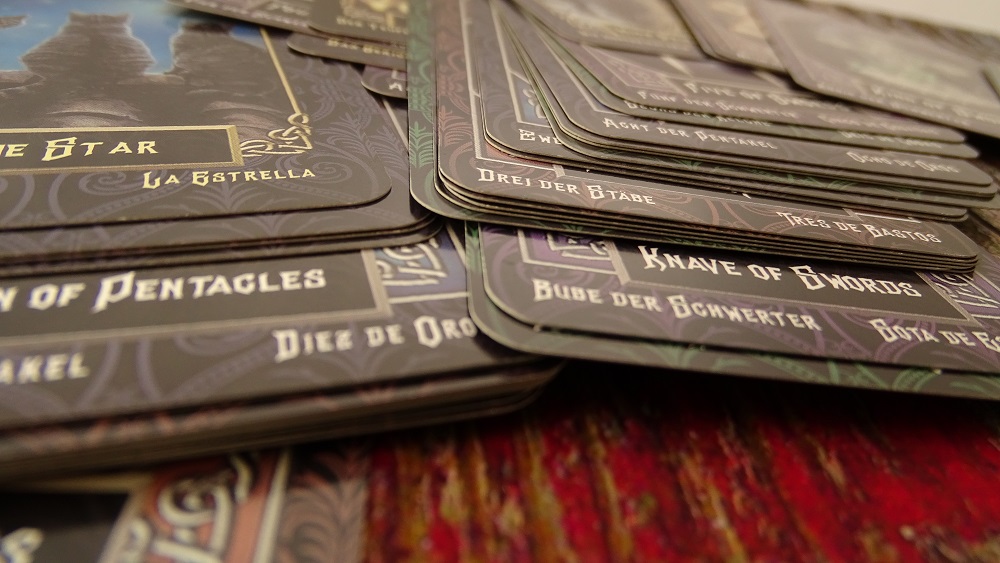What are the different types of Tarot Readers?
If you want to evaluate yourself as a tarot reader (what are you, what is your style, your peculiarity, as an esoteric) you can take the Major Arcana cards, ask the appropriate question and draw a card. It’s not really about the level of mastery of the Tarot, it’s more about the direction of your development.
The Fool: the tarologist-experimenter. In his work, he uses new, unsupported ideas. He is far from tradition. His ideas are perceived by other people as strange, poorly understood, but nevertheless, attracting attention to themselves, by their uniqueness and novelty.
The Magician: the tarologist-theoretician. He knows the system very well, knows how to prove, justify, and is a good speaker. This tarot reader has original ideas, knows how to write works on the Tarot beautifully and clearly, convey his thoughts clearly so that they sink into the soul of a person. In his work, he uses more logic than intuition. That is, it is important for him to logically substantiate the Tarot spread, rather than just feel it.
The High Priestess: the sensitive tarot reader. This tarot reader deeply feels his cards. It combines both knowledge of the system and an intuitive approach. He likes to work with symbolism. He often uses knowledge from the field of psychology in his work. He reads a lot, constantly enriches his knowledge.
The Empress: the practicing tarologist. For her, the practical aspect is important, it is important to see real, tangible results. Research and philosophy is of little interest to her. Often she uses her knowledge of the Tarot in magical practices. Tarot is of interest as a tool, not as a science. From here, you might like the variety of decks, the interest in beauty, the design of the cards. Can look at Tarot as a business.
The Emperor: the tarot reader for whom the Tarot is a system of knowledge. The Emperor knows the system very well. In his work, he often uses not an intuitive, but a systematic approach. Unlike the Priest, he does not bind the Tarot to any particular occult doctrine. For example, there are certain rules for reading Tarot spreads, rules for working with cards. For the Emperor, form is more important than content.
The Hierophant: the tarologist that follows the traditions. This tarot reader usually studies and works with the Tarot within the framework of a certain tradition, occult doctrine, which he studied thoroughly. It is difficult for him to go beyond this doctrine, but he lives it and feels it to the roots of his hair. This is a very deep, albeit conservative tarot reader. He is the keeper of knowledge and protects it from new, modern trends that can distort this knowledge.
The Lovers: the contact tarot reader. He does not go into the depths of knowledge, is not tied to tradition. Only the emotional response when working with cards is important to him. Often he uses someone else’s experience, studies of other authors, modernizing and transforming them, adjusts to his own reality. His ideas are interesting, original, and since he is not strictly tied to any occult doctrine, he can easily and painlessly change one model to another if he sees that it does not stand up to criticism.
The Chariot: the progressive tarot reader. In his work he uses some progressive techniques and solutions. He is very individual, tries to adhere to his own path. It is important for him to show himself, to take a leading position. For him, the Tarot is like an opportunity for growth, victory over negative thinking. This is one who can make a breakthrough in occult science, is not afraid to experiment, to take risks in his research. But you may the impression that the process is important to him, not the result.
Strength: the energetic tarot reader. The peculiarity of this tarot reader is that he has a lot of energy, he is able to work for a long time and not get tired. High spirituality, passion for one’s work, charisma, the ability to attract attention to oneself – these are the features of the Strength.
The Hermit: the researcher tarot reader. Often has its own doctrine, its own research in the field of the Tarot, different from generally accepted ideas. Deep esoteric, but unlike the Priest he is outside the system, outside the doctrine. He has his own way, because he is Different. Tarot for the Hermit is a system of knowledge, it is a science that he is ready to study all his life and devote all his time to it.
Wheel of Fortune: the fatalist tarot reader. Such a tarot reader trusts fate more than cards. He cares about “what will be”, not “what will be if”. I would even say that he is more a fortuneteller than a tarot reader. An excellent predictor, his predictions are very accurate, but do not imply work on oneself in order to change the situation. It may be a tarot reader who is in a transitional state. He will soon completely change his style, and since he will no longer be like now.
Justice: the adequate tarot reader. In his work, he uses a logical approach. He does not like “mystical dregs”, he is sober and reasonable. He trusts not the feelings, but his mind. He can strictly adhere to any system, and work within the framework of such and such a school, without allowing his own uniqueness to shine. He is a person of the system.
The Hanged Man: the mystic tarot reader. The Hanged Man is one who receives information not from the knowledge of the Tarot as a system, but through meditation, trance states, various techniques (for example, entering the Arcana, etc.). For those practitioners who value a systematic approach to the Tarot, it is sometimes difficult to understand the Hanged Man. It seems that his vision of the Tarot spread is far from any logic, that the information that he can give out is not obvious after looking at the laid out cards. At the same time, the Hanged Man may well understand the systematic approach, know the rules for reading cards, but he works through the kind of insights that I described above.
The Death: the psychotherapist tarot reader. Death can be a tarologist who works with a change in a person’s consciousness, a researcher of the soul that applies psychological methods. There can be much more psychological aspects than the Tarot itself.
The Temperance: the harmonious tarot reader. This is a specialist who harmoniously combines knowledge from various fields in his work, without delving too deeply into any of them, and through synthesis gets a new direction. For example, tarot + astrology or tarot + psychology.
The Devil: the sophisticated tarot reader. This tarot reader has a weak immunity to all sorts of temptations, and a passion for Tarot, a great desire to penetrate all the secrets, even if, in some secrets, it is better for him not to meddle. Also the Devil tarologist can be a practitioner-researcher. He deeply studies the Tarot system, but with a practical purpose, for example, to make money on it. Works well with the shady sides of a person’s soul.
The Tower: the revolutionary tarot reader. It can be a tarot reader who breaks the established system, goes against what is generally recognized, approved by all, while he finds justification for his ideas. It can also be a tarot psychologist who works with the psychological problems of people, breaks down petrified thinking, rebuilds consciousness.
The Star: the predictive tarologist. This tarot reader approaches the Tarot from a philosophical point of view. The tarot is important as a tool for predicting the future. Uses an intuitive approach (this tarot reader has a developed internal compass, which helps him, shows the right direction). In addition, the ideas of such a tarot reader have an excellent foundation for the future, are very promising, they can outlast him. A person on his own wavelength may not be very clear to others. The Star rises above the situation it is considering, it may not see any small details, but it is accurate in the overall picture of what is happening.
The Moon: the incomprehensible tarot reader. This can be a very deep tarot reader who knows and applies psychology in his work. But for others he is little understood. It seems that there are many illusions, fantasies in his ideas, which may be true. He relies not on logical conclusions, not on a systematic approach, but on internal impulses. He is able to receive information through trance states. Knows how to work with inner fears, human blocks.
The Sun: the shocking tarot reader. This tarot reader is very bright, charismatic, unique, and attracts attention. Possesses knowledge and techniques, he inspires, leads, can deliberately draw attention to himself, since the audience’s assessment is important to him. Works well with topics related to the purpose, mission of a person.
The Judgement: the experienced tarot reader. He has a huge store of knowledge, went through mistakes and achieved a lot in his work. It presents traditional knowledge in a new light, gives life to forgotten ideas, resurrecting them. Knows how to work with ancestral programs, systemic processes, past incarnations.
The World: the perfect tarologist who has penetrated into the highest depths of knowledge. He knows several disciplines that he harmoniously combines with the Tarot, while he does not pretend to have the supremacy of this or that knowledge. He uses a holistic approach, he considers the primacy of the whole over the parts. Can show a universal tarot reader who is able to work with any questions.
Discover more from Esoteric Hut
Subscribe to get the latest posts sent to your email.




How does understanding the different tarot reader archetypes enhance your appreciation and approach to tarot reading?
Hello
Understanding the different tarot reader archetypes enriches my appreciation and approach to tarot reading by providing insight into the diverse ways people engage with the cards. By recognizing these varied perspectives, I can better understand my own strengths and preferences as a tarot reader. Additionally, exploring these archetypes fosters a deeper appreciation for the complexity and depth of tarot symbolism, as each archetype reflects different aspects of human nature and interpretation. This understanding allows me to approach tarot readings with greater flexibility, openness, and empathy, both for myself and for those seeking guidance through tarot.